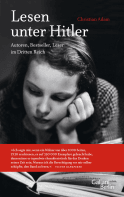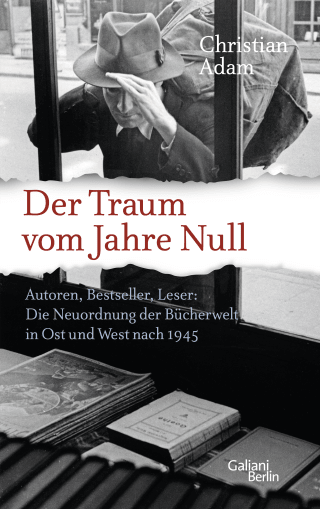The war is over, the Germans have suffered a crushing defeat. The population has lost its sense of direction – and the occupying forces in both the East and West quickly realize that they can effectively influence people’s perceptions through newspapers and books. Libraries are quickly purged of the old Nazi literature, printing licenses are granted and structures rebuilt. A radical new beginning is wanted; it’s the dream of zero hour. Yet, with the Cold War, books and authors increasingly become a bone of contention between the systems; parties and secret services finance publishers, books become ideological weapons.
Christian Adam examines the mindsets of the Germans based on which books were bestsellers in the East and West, telling a vast range of gripping stories in the process – among others, about the East German publisher Günter Hofé, who was arrested on his way to the Frankfurt Book Fair on charges of espionage; about Lothar Blanvalet, who didn’t “come from nothing” but was still publishing humorous works for Wehrmacht soldiers as late as 1944; about Harry Thürk, the “Konsalik of the East,” who didn’t mince words in the face of German war crimes – in stark contrast to his Western colleague Hans Hellmut Kirst, who downplayed the events in novels read by millions; about secret services that supported publishers, lists of banned books and even book burnings.
The dream of Year Zero? Christian Adam annihilates it. His carefully researched stories about authors, books, bestsellers and readers in the postwar period shine a bright light on German-German postwar society and how it dealt with its onerous legacy and visions.



